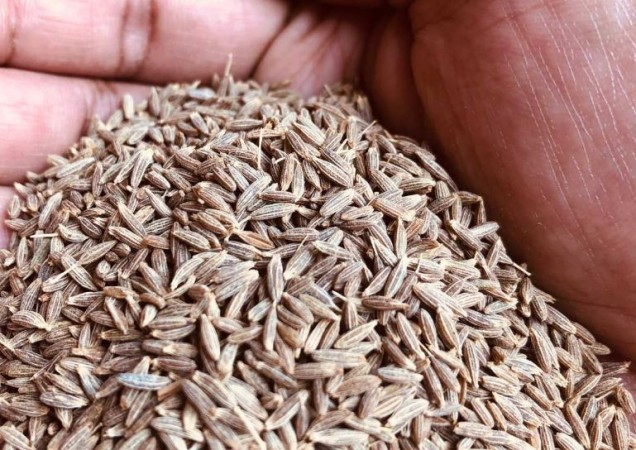
Cumin, also known as jeera, is an essential spice in Indian cuisine, used in a variety of everyday dishes such as lentils, tempering, vegetables, khichdi, or any kind of curry, as well as in non-vegetarian dishes. Whether it's a simple soup or a heavily spiced meal, cumin is a staple ingredient in many Indian households. Roasting cumin or tempering food with it enhances the overall flavor of the dish. However, despite its culinary benefits, excessive consumption of cumin can have various side effects on the body, affecting different aspects of health. In this comprehensive article, we will explore in detail the potential side effects of consuming cumin, along with other related aspects.
Short-term Effects:
Heartburn: Excessive consumption of cumin can lead to a burning sensation in the chest and throat, commonly known as heartburn. This uncomfortable sensation can be bothersome and may persist for a few hours.
Belching: Cumin can sometimes cause increased belching or burping, leading to discomfort and a feeling of bloating in the stomach.
Decreased Blood Sugar Levels: Cumin has been linked to the reduction of blood sugar levels. While this might be beneficial for individuals with high blood sugar, it can cause hypoglycemia in some cases, leading to symptoms such as dizziness, weakness, and shakiness.
Prolonged Effects:
Increased Risk of Miscarriage: Excessive intake of cumin has been associated with an increased risk of miscarriage, particularly in pregnant women. It is advised for pregnant women to regulate their cumin intake and consult a healthcare professional for guidance.
Interaction with Medications: Cumin may interact with certain medications, particularly those prescribed for diabetes and blood-thinning. It is crucial for individuals taking these medications to monitor their cumin intake and consult a healthcare provider for appropriate guidance.
Liver and Kidney Damage: Prolonged and excessive consumption of cumin has the potential to adversely affect liver and kidney function. It is essential to consume cumin in moderation to avoid putting unnecessary strain on these vital organs.
Skin Irritation: Some individuals may experience skin irritation, such as itching or rashes, as a result of excessive cumin intake. It is advisable to be mindful of any allergic reactions and consult a dermatologist if any skin-related issues arise.
Gastrointestinal Issues: Overconsumption of cumin may lead to gastrointestinal problems such as diarrhea, constipation, or even irritable bowel syndrome (IBS) in susceptible individuals. Maintaining a balanced diet and consuming cumin in moderation can help prevent these issues.
Respiratory Allergies: In some cases, cumin can trigger respiratory allergies, causing symptoms such as coughing, wheezing, or shortness of breath. Individuals with a history of respiratory allergies should exercise caution while consuming cumin and consult an allergist if necessary.
Dosage and Precautions:
To minimize the risk of adverse effects, it is essential to consume cumin in moderation and as part of a balanced diet. Here are some precautions to consider:
Consult a Healthcare Professional: If you are pregnant, breastfeeding, or have any pre-existing medical conditions, it is crucial to consult a healthcare professional before incorporating cumin into your diet.
Allergic Reactions: Individuals with known allergies to spices or seeds should be cautious when consuming cumin and seek medical advice if they experience any adverse reactions.
Moderation: While cumin offers various health benefits and enhances the flavor of dishes, it is crucial to consume it in moderation to prevent any potential side effects. Maintaining a balanced diet and incorporating a variety of spices can help avoid overreliance on any single ingredient.
Monitoring Intake: Individuals on medications for diabetes, blood pressure, or any other chronic conditions should monitor their cumin intake and consult their healthcare provider to prevent any potential interactions.
Culinary Use: Incorporating cumin in cooking can add depth and flavor to dishes. However, it is advisable to use it in moderation and balance it with other spices to avoid overwhelming the palate and potential side effects.
While cumin is a popular spice known for its culinary and medicinal properties, it is essential to be aware of its potential side effects, especially when consumed in excess. Understanding the importance of moderation and consulting a healthcare professional can help individuals make informed decisions about their dietary choices. By incorporating cumin mindfully and in appropriate quantities, individuals can enjoy its flavor and benefits without compromising their overall health and well-being.
The air of Delhi-NCR is going to suffocate, buy air purifier today at 40% discount
Eating too many raisins can be harmful, know how many raisins should be eaten in a day